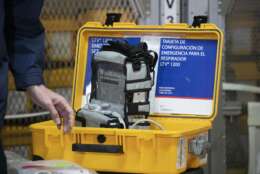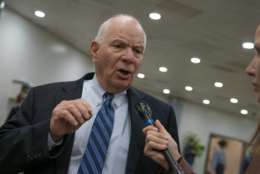Acquisition
-
Federal contractors, especially small businesses, must apply for assistance under the CARES Act stimulus bill, at a time when demand for their services is higher than ever.
April 14, 2020 -
Supply and cost are always important drivers for the government to jump in.
April 14, 2020 -
The Defense Department and the Office of the Director of National Intelligence released memos late last week outlining how contractor officers can implement a provision of the stimulus spending bill to pay contractors if they can’t work because of the coronavirus pandemic.
April 14, 2020 -
House Oversight and Reform Committee Chairwoman Carolyn Maloney (D-N.Y.) and Government Operations Subcommittee Chairman Gerry Connolly (D-Va.) have a long list of legislative proposals they want to see included in the next coronavirus rescue package for federal employees and contractors.
April 13, 2020 -
Enforced isolation of the pandemic has made a lot of people a bit lonelier. For veterans already at risk of suicide, the situation deepens the threat.
April 13, 2020 -
The IT Acquisition Advisory Council (IT-AAC) sent a memo to House and Senate lawmakers explaining why the Defense Department should drop its JEDI plan and follow the path of the CIA.
April 13, 2020 -
The Pentagon plans to announce new contracts under the Defense Production Act to increase the domestic supply of critical N95 respirators over the next three months.
April 13, 2020 -
This week on Off the Shelf, Jon Etherton, president of Etherton and Associates, joins host Roger Waldron to discuss how key provisions in the Fiscal Year 2020 NDAA will impact procurement and operations at the Defense Department.
April 12, 2020 -
Upon a return to more normal operations, GSA can address gaps in the solicitation that undermine the integrity of the federal market.
April 10, 2020 -
Sarkis Tatigian joined the Navy in 1942. He’s been there ever since, until his death this week at the age of 96. Read about him and other Defense news in this week's DoD Reporter's Notebook.
April 08, 2020 -
Government contractors are changing the way they are communicating with their clients and seeking more details for how to continue to meet mission needs.
April 07, 2020 -
This week on Off the Shelf, the Booz Allen Hamilton Immersive Technologies team joins host Roger Waldron to explain how technological advances in virtual and augmented reality are changing the way the Department of Defense trains, plans and executes.
April 06, 2020 -
Agencies expected to award 58 task orders under the Enterprise Infrastructure Solutions (EIS) contract by March 31, but instead awarded 10, putting the $50 billion program on a path similar to the last telecommunications transition debacle.
April 06, 2020 -
The House Armed Services Committee's ranking member says previous reform efforts have told DoD to pay more attention to sustainment costs, but only for individual weapons systems.
April 03, 2020 -
Maryland is among the states with the highest concentration of federal employees, agencies and contractors, making drafting of the emergency stimulus bill signed last Friday by President Donald Trump especially important.
April 02, 2020















